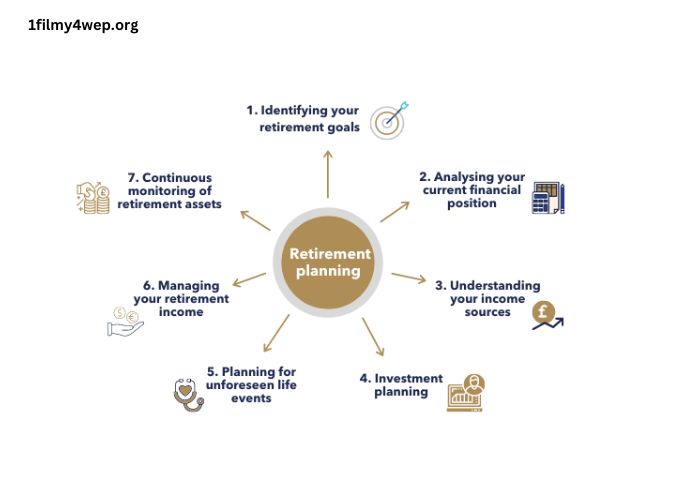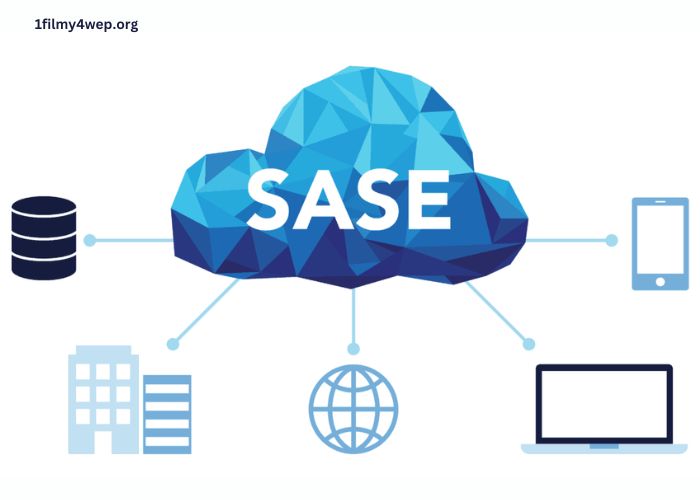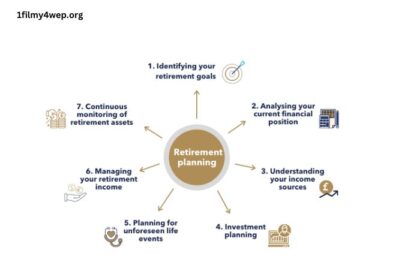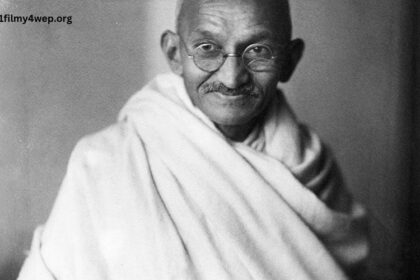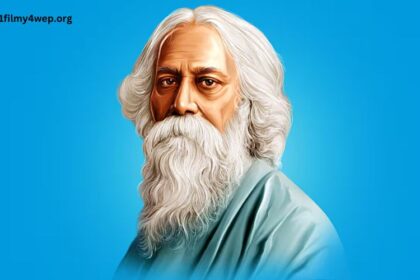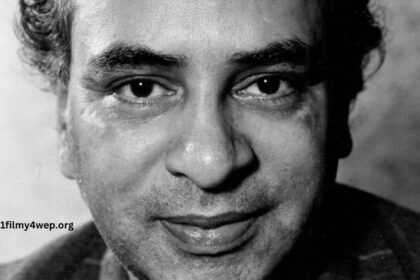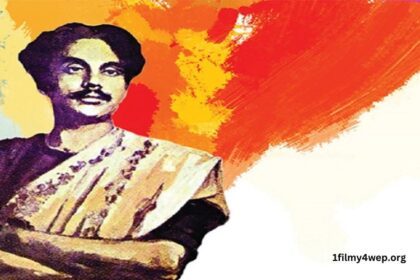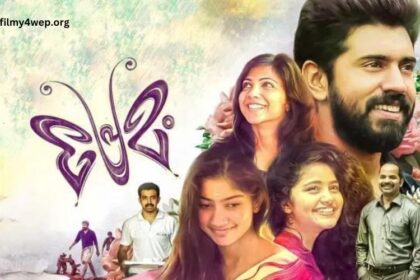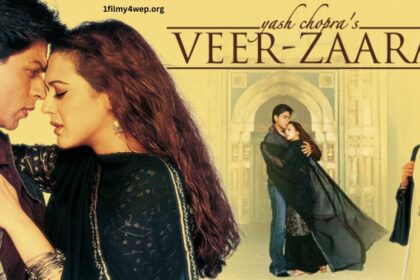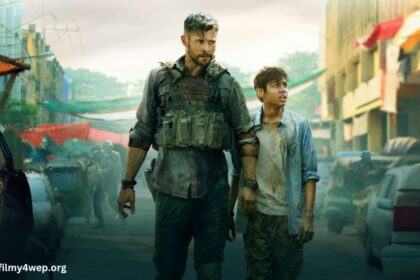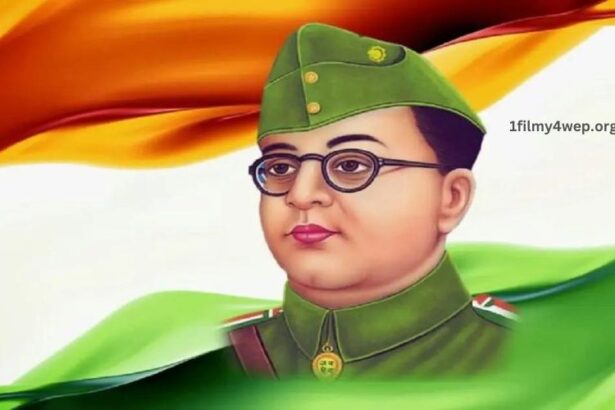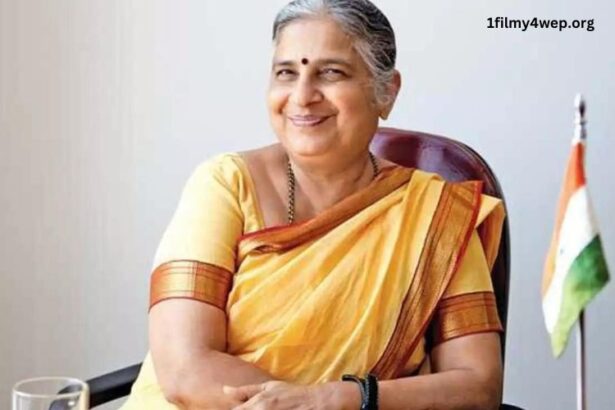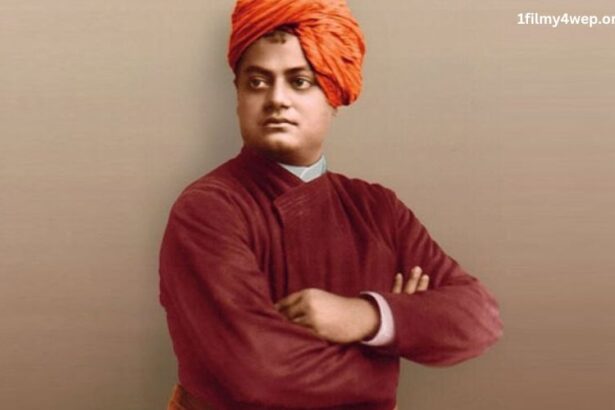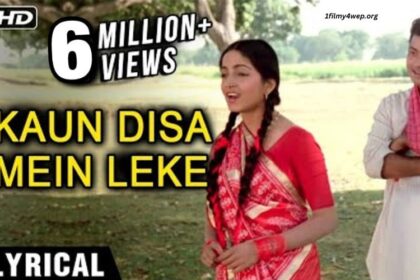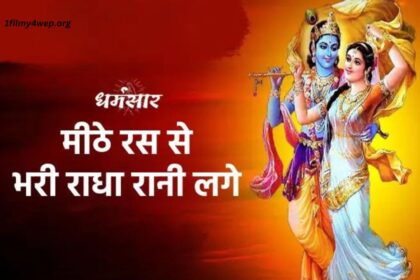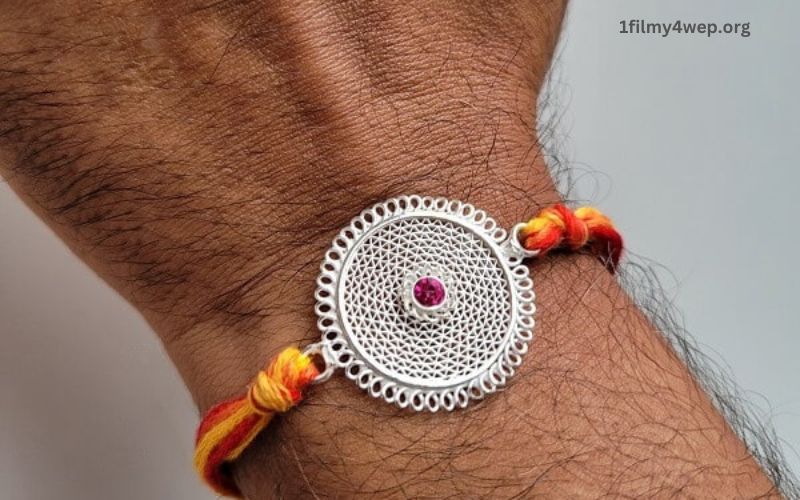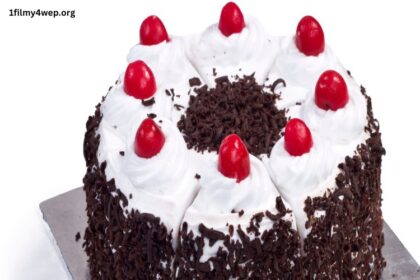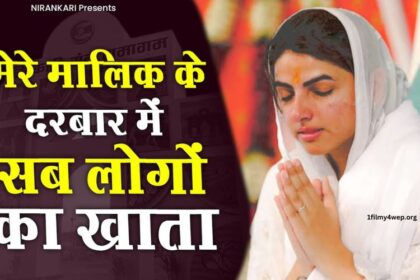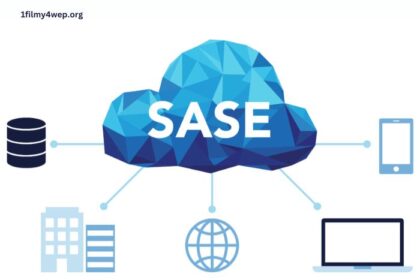Creating a Robust Retirement Plan: Key Strategies for Financial Security
Introduction to Retirement Planning Embarking on your retirement planning journey is a rewarding endeavor that leads to financial security and the freedom of enjoying your…
1filmy4wep
1filmy4wep is a cutting-edge entertainment platform that has captured the attention of millions worldwide. As a leading provider of on-demand digital content, 1filmy4wep offers subscribers an unparalleled viewing experience, granting them access to a vast library of movies, TV shows, documentaries, and original series. With its user-friendly interface and diverse content offerings, 1filmy4wep has become a go-to destination for entertainment enthusiasts seeking a seamless and immersive experience.
At its core, 1filmy4wep is a streaming service that allows users to access a wide range of multimedia content through their internet-connected devices, such as smartphones, tablets, laptops, and smart TVs. The platform’s intuitive design and intuitive navigation make it easy for users to discover and enjoy their favorite titles, regardless of their location or device.
The History of 1filmy4wep
1filmy4wep’s origins can be traced back to a time when the entertainment landscape was undergoing a transformative shift. As traditional media distribution models faced challenges posed by the digital revolution, a team of visionary entrepreneurs recognized the growing demand for on-demand, accessible entertainment. They set out to create a platform that would revolutionize the way people consume and interact with content, ultimately giving birth to 1filmy4wep.
The platform’s inception was marked by a relentless pursuit of innovation and a deep understanding of the evolving needs of modern audiences. By leveraging cutting-edge technology and forging strategic partnerships with leading content providers, 1filmy4wep quickly established itself as a trailblazer in the streaming industry. Its rapid growth and widespread adoption have solidified its position as a global entertainment powerhouse, catering to the diverse preferences of viewers across the world.
Features of 1filmy4wep
1filmy4wep boasts an impressive array of features that cater to the diverse needs and preferences of its user base. Here are some of the key features that set the platform apart:
Extensive Content Library: 1filmy4wep’s content library is a treasure trove of movies, TV shows, documentaries, and original series, spanning a wide range of genres and languages. From the latest blockbusters to timeless classics, the platform offers an unparalleled selection to satisfy the varied tastes of its subscribers.
Personalized Recommendations: 1filmy4wep’s advanced algorithms analyze user preferences and viewing history to provide personalized recommendations, ensuring that users are constantly presented with content that aligns with their interests.
Seamless Streaming Experience: The platform’s robust infrastructure and optimized streaming capabilities deliver a seamless viewing experience, with minimal buffering and high-quality video and audio.
Multi-Device Compatibility: 1filmy4wep is designed to be accessible across a wide range of devices, including smartphones, tablets, laptops, and smart TVs, allowing users to enjoy their favorite content anytime, anywhere.
Offline Viewing: With the ability to download select titles for offline viewing, 1filmy4wep caters to the needs of users who seek uninterrupted entertainment, even in areas with limited internet connectivity.
Parental Controls: The platform offers comprehensive parental controls, enabling users to manage content access and ensure a safe viewing environment for their children.
Subtitles and Language Options: 1filmy4wep supports a diverse range of subtitle and language options, catering to the needs of a global audience and enhancing the viewing experience for users with diverse linguistic preferences.
These features, combined with a user-friendly interface and a commitment to continuous improvement, have made 1filmy4wep a go-to destination for entertainment seekers worldwide.
How to Use 1filmy4wep
Using 1filmy4wep is a straightforward and intuitive process. Here’s a step-by-step guide to help you get started:
Sign Up or Log In: Visit the 1filmy4wep website or download the mobile app, and proceed to sign up for a new account or log in to your existing one.
Browse and Search: Explore the platform’s extensive content library by browsing through the various genres, trending titles, or using the search function to find specific movies, TV shows, or original series.
Select and Play: Once you’ve identified the content you wish to watch, simply click or tap on the title to start streaming. The platform’s user-friendly interface will guide you through the playback process.
Customize Viewing Experience: Tailor your viewing experience by adjusting settings such as video quality, subtitles, and audio language preferences.
Download for Offline Viewing: If you’re planning to watch content in areas with limited internet connectivity, take advantage of the platform’s offline viewing feature and download your selected titles for later access.
Manage Profiles and Parental Controls: Create multiple user profiles and utilize the parental control features to ensure a safe and personalized viewing experience for all members of your household.
Stay Updated: Keep an eye on the platform’s regularly updated content library and take advantage of the personalized recommendations to discover new and exciting titles.
By following these simple steps, you’ll be able to seamlessly navigate and enjoy the vast array of entertainment options available on 1filmy4wep.
Benefits of Using 1filmy4wep
Choosing 1filmy4wep as your entertainment platform comes with a multitude of benefits, making it a compelling choice for entertainment enthusiasts. Here are some of the key advantages of using 1filmy4wep:
Extensive Content Library: With its vast collection of movies, TV shows, documentaries, and original series, 1filmy4wep caters to a wide range of preferences, ensuring that there’s something for everyone.
Convenience and Accessibility: The platform’s ability to be accessed across a variety of devices, coupled with its seamless streaming capabilities, allows users to enjoy their favorite content anytime, anywhere, with minimal interruptions.
Personalized Recommendations: 1filmy4wep’s advanced algorithms analyze user preferences and viewing history to provide personalized recommendations, enhancing the discovery of new and exciting content.
Offline Viewing: The option to download select titles for offline viewing enables users to enjoy their favorite content even in areas with limited internet connectivity, making it an ideal companion for travel or commuting.
Parental Controls: The comprehensive parental control features empower users to manage content access and ensure a safe viewing environment for their children, addressing the needs of families with diverse age groups.
Multilingual Support: 1filmy4wep’s support for a wide range of subtitle and language options caters to the needs of a global audience, making it an inclusive platform for users with diverse linguistic preferences.
Cost-Effective: Compared to traditional cable or satellite TV subscriptions, 1filmy4wep offers a more cost-effective solution for entertainment, providing users with access to a vast library of content at a fraction of the cost.
By leveraging these benefits, users can enjoy a seamless, personalized, and enriching entertainment experience that caters to their unique preferences and needs.
Alternatives to 1filmy4wep
While 1filmy4wep has established itself as a leading entertainment platform, there are several alternative options available in the market that cater to different preferences and needs. Some of the notable alternatives to 1filmy4wep include:
Netflix: A well-known and widely popular streaming service that offers a vast library of movies, TV shows, documentaries, and original content.
Amazon Prime Video: An on-demand streaming service that provides access to a diverse range of movies, TV shows, and original programming, in addition to other Amazon Prime benefits.
Hulu: A streaming platform that offers a mix of popular TV shows, movies, and original content, often featuring next-day access to current TV series.
Disney+: A streaming service that focuses on content from Disney, Pixar, Marvel, Star Wars, and National Geographic, catering to families and fans of these iconic franchises.
HBO Max: A comprehensive streaming service that provides access to HBO’s acclaimed original programming, as well as a vast library of movies and TV shows from the WarnerMedia portfolio.
Apple TV+: A streaming platform that features a growing collection of original series, movies, and documentaries produced by Apple.
While each of these alternatives offers unique features and content libraries, the choice ultimately depends on your personal preferences, the types of content you enjoy, and the overall value proposition that aligns with your entertainment needs.
Is 1filmy4wep Legal and Safe?
One of the primary concerns that often arises when exploring alternative entertainment platforms is the legality and safety of the service. In the case of 1filmy4wep, the platform has taken extensive measures to ensure that its operations are fully compliant with applicable laws and regulations, providing users with a safe and secure viewing experience.
1filmy4wep operates within the legal framework of the regions it serves, partnering with licensed content providers and adhering to content distribution agreements. The platform’s content library is regularly reviewed and updated to ensure that all titles are obtained through legitimate channels, safeguarding users from any potential legal issues.
Furthermore, 1filmy4wep has implemented robust security measures to protect the privacy and data of its users. The platform utilizes industry-standard encryption protocols, secure payment processing, and comprehensive user data protection policies to ensure the confidentiality and integrity of user information.
To further enhance the safety of its platform, 1filmy4wep has also incorporated parental control features, allowing users to manage content access and ensure a suitable viewing environment for their children. This feature empowers parents and guardians to make informed decisions about the content their family members can access, addressing the concerns of families with diverse age groups.
By prioritizing legality and user safety, 1filmy4wep has established itself as a trustworthy and reliable entertainment platform, offering users peace of mind as they immerse themselves in the vast array of content available on the service.
Common Issues and Solutions with 1filmy4wep
While 1filmy4wep strives to provide a seamless and enjoyable entertainment experience, users may occasionally encounter some common issues. Here are some of the most prevalent problems and their corresponding solutions:
Buffering or Lag during Streaming:
- Solution: Ensure that your internet connection is stable and has sufficient bandwidth to support the streaming quality you’ve selected. You can also try adjusting the video quality settings to optimize the streaming experience.
Difficulty Finding Specific Content:
- Solution:Utilize the platform’s comprehensive search function and browse through the various genre categories to locate the desired content. Additionally, you can take advantage of the personalized recommendations to discover new titles that align with your preferences.
Playback Issues or Video Quality Concerns:
- Solution: Check your device’s compatibility with the 1filmy4wep platform and ensure that your hardware and software are up-to-date. If the issue persists, contact the platform’s customer support team for further assistance.
Trouble with Account Management or Subscription:
- Solution: Review your account settings and subscription details to ensure that everything is configured correctly. If you encounter any billing or account-related problems, reach out to the 1filmy4wep customer support team for prompt resolution.
Difficulty with Offline Viewing or Downloads:
- Solution: Verify that the content you’re trying to download is compatible with the offline viewing feature and that you have sufficient storage space on your device. If the issue persists, consult the platform’s user guides or contact customer support for guidance.
Concerns about Content Availability or Licensing:
- Solution:Stay informed about the platform’s content library updates and new additions. If you’re unable to find a specific title, check the 1filmy4wep website or mobile app for the latest information on content availability.
By addressing these common issues and following the recommended solutions, you can ensure a seamless and enjoyable experience with 1filmy4wep, maximizing the benefits of the platform’s extensive entertainment offerings.
1filmy4wep vs Other Similar Platforms
As the entertainment landscape continues to evolve, 1filmy4wep finds itself competing against a growing number of similar streaming platforms. While each service offers unique features and content libraries, it’s essential to understand the key differences between 1filmy4wep and its competitors to make an informed choice.
One of the primary differentiators of 1filmy4wep is its extensive content library, which spans a diverse range of genres and caters to a global audience. The platform’s partnerships with leading content providers and its commitment to regularly updating its offerings ensure that users have access to a vast selection of movies, TV shows, documentaries, and original series.
In contrast to some of its competitors, 1filmy4wep also places a strong emphasis on user experience, with a user-friendly interface, personalized recommendations, and seamless streaming capabilities. This attention to detail and user-centric approach sets 1filmy4wep apart, providing subscribers with a more immersive and tailored entertainment experience.
Furthermore, 1filmy4wep’s commitment to legal compliance and user safety distinguishes it from platforms that may operate in legal gray areas. The platform’s adherence to content distribution agreements and its robust security measures instill confidence in users, ensuring a secure and trustworthy viewing experience.
While other streaming services may excel in specific areas, such as exclusive content or niche genre offerings, 1filmy4wep’s well-rounded approach and its ability to cater to a diverse audience make it a compelling choice for entertainment seekers.
Ultimately, the decision to choose 1filmy4wep over other similar platforms will depend on individual preferences, content preferences, and the overall value proposition that aligns with your entertainment needs.
Conclusion
1filmy4wap, a renowned entertainment platform, has undergone a significant evolution since its inception. Today, it stands as a global leader in delivering diverse content, including movies, documentaries, and original series. At its core, 1filmy4wap provides subscribers access to a vast library of content, available on-demand via the internet. Its range of genres and languages ensures broad appeal, catering to diverse tastes and preferences.
1filmy4wep’s commitment to innovation, user experience, and legal compliance has solidified its position as a trusted and reliable entertainment destination. With its extensive content library, personalized recommendations, seamless streaming capabilities, and comprehensive safety features, the platform offers a compelling value proposition for entertainment seekers.
As the entertainment landscape continues to evolve, 1filmy4wep remains at the forefront, constantly adapting to the changing needs and preferences of its user base. By providing a seamless and immersive viewing experience, the platform has become a go-to destination for those seeking a diverse and enriching entertainment experience.
1filmy4wap, a renowned entertainment platform, has undergone a significant evolution since its inception. Today, it stands as a global leader in delivering diverse content, including movies, documentaries, and original series. At its core, 1filmy4wap provides subscribers access to a vast library of content, available on-demand via the internet. Its range of genres and languages ensures broad appeal, catering to diverse tastes and preferences.
Featured Stories
Top 10 Moments from Taaza Khabar Season 1
If you haven't yet entered the exciting world of Taaza Khabar Season 1, then you are losing out on a rollercoaster of emotions, humor, and…
Premam (2015 Tamil Dubbed Movie Download Isaimini)
"Premam" is a 2015 Indian Malayalam-language romantic drama film that became a massive hit across…
Pathan-Movie-Download-Filmyzilla-720P-Download
Pathan" is the highly anticipated Bollywood action thriller directed by Siddharth Anand and starring Shah…
Veer Zaara Full Movie HD 720P Download Filmyzilla
"Veer Zaara" is a 2004 Indian romantic drama film directed by Yash Chopra and written…
Extraction 2 Full Movie Download in Hindi Filmyzilla
Extraction 2, the highly anticipated sequel to the 2020 action thriller Extraction, is set to…
Subhash Chandra Bose Biography in English PDF
Subhash Chandra Bose, also known as "Netaji," was a prominent Indian revolutionary who played a…
Sudha Murthy Biography in English PDF
Sudha Murthy is a renowned Indian philanthropist, author, and educator who has made significant contributions…
Swami Vivekananda Biography in English PDF
Swami Vivekananda was a revered Indian monk and one of the most influential spiritual leaders…
Vasant Desai AE Malik Tere Bande Hum Lyrics
"Ae Malik Tere Bande Hum" is a beloved and timeless devotional song that has captivated audiences for generations. Composed by the renowned Indian musician Vasant…
Kaun Disha Mein Leke Chala Re Batohiya Lyrics
"Kaun Disha Mein Leke Chala Re Batohiya" is a beloved folk song that has captivated…
Tu Hai Toh Mujhe Phir Aur Kya Chahiye Lyrics
"Tu Hai Toh Mujhe Phir Aur Kya Chahiye" is a song that resonates deeply with…
Mithe Ras SE Bhari Radha Rani Lage Lyrics
"Mithe Ras Se Bhari Radha Rani Lage" is a deeply cherished bhajan in the realm…
Don't Miss
Chandi KI Rakhi Design With Price
Raksha Bandhan is a cherished festival in India, where sisters tie a sacred thread called a "Rakhi" on their brother's wrist as a symbol of…
Black Forest Cake Price 1 2 KG
The Black Forest cake, known for its layers of rich chocolate sponge, whipped cream, and…
Resort Near Vadodara for One Day Picnic With Price
Are you seeking a quick escape from the hustle and bustle of Vadodara, wanting to…
Vinaya Vidheya Rama Movie Hindi Dubbed Download Mp4moviez
Vinaya Vidheya Rama is a 2019 Indian Telugu-language action film directed by Boyapati Srinu. The…
Mere Malik KE Darbar Mein Sab Logon Ka Khata Lyrics
"Mere Malik KE Darbar Mein Sab Logon Ka Khata" is a profound and poignant song…
Creating a Robust Retirement Plan: Key Strategies for Financial Security
Introduction to Retirement Planning Embarking on your retirement planning journey is a…
Harnessing AI for Passive Income: The T-Shirt Printing Revolution
In today’s fast-paced digital world, the idea of earning passive income is…
Streaming Online Games: How Twitch and YouTube Changed the Game
If you’ve ever scrolled through Twitch or YouTube, you’ve probably come across…
How SASE is Transforming Modern Cybersecurity
Key Takeaways Understand the fundamental principles of Secure Access Service Edge (SASE).…
Football Gaming Trends to Watch in 2025 with Our Advance Platform
The world of football betting is always changing, and 2025 will no doubt…
The Role of Mentorship in Prop Firms for New Traders
Success in trading comes from guidance, training, and dedication. This principle holds…
How Online Gaming Graphics Enhance Player Experiences
Online slot games have come a long way from their humble beginnings.…
Revolutionizing the Gaming Experience V3 Games
In the ever-evolving world of gaming, V3 Games stands as a trailblazer,…

